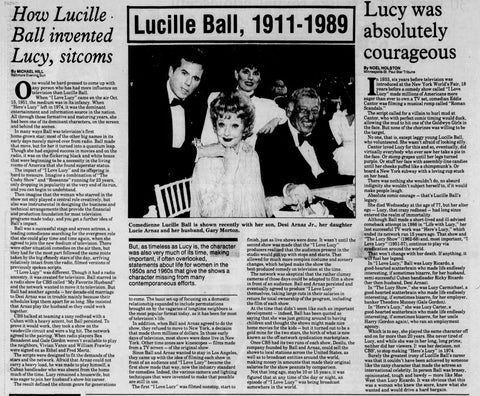Pandora Writer |
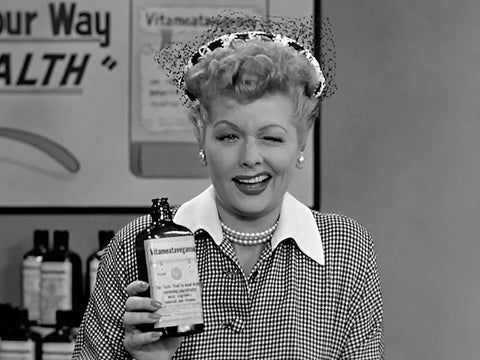
“Well, I'm your Vitavigavegivat Girl. Are you tired, run down, listless? Do you pop out at parties? Are you unpoopular?”
— Lucy Ricardo
In Hollywood history, there are few figures as beloved and influential as Lucille Ball. Her name is synonymous with laughter, charisma, and the sheer joy of entertainment. Her groundbreaking television show, "I Love Lucy," made her a beloved household name.
Let’s go on a journey through the life of this extraordinary woman, from her humble beginnings, rise to stardom, and lasting impact on the entertainment industry.
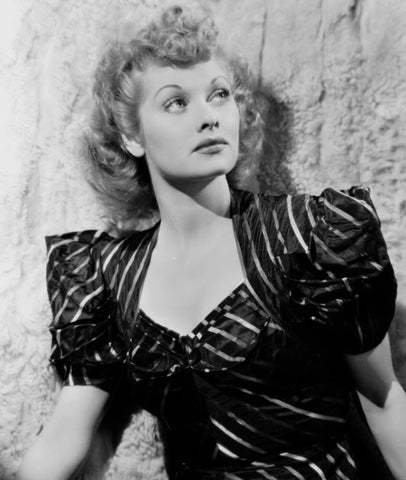
Lucille Ball was born on August 6, 1911 in Jamestown, New York. Her childhood was not without its share of challenges. Her father, Henry Ball, passed away from typhoid fever when she was only three years old, leaving her mother, Desiree Evelyn "DeDe" Hunt, to raise Lucille and her younger brother, Fred.
Desiree eventually met her second husband, Ed Peterson. Ed was not fond of children and convinced Desiree to move with him to Detroit, leaving Lucille and Fred behind. Fred went to live with Desiree's parents, while Lucille resided with Ed's parents.
Years later, Lucille reunited with her mother and Ed when they returned to New York from Detroit. At age 15, Lucille convinced her mother to allow her to quit high school and enroll at the John Murray Anderson-Robert Milton Dramatics School in New York City.
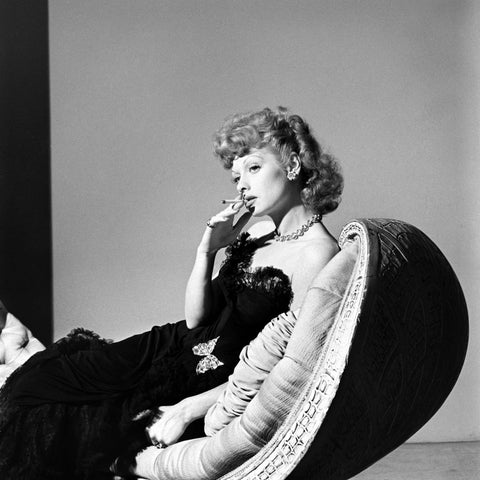
Lucille's grandfather often took her to vaudeville shows, introducing her to the world of comedy. Despite financial hardships, Lucille's mother encouraged her daughter's passion for the performing arts. Lucille started her journey in the entertainment world as a model (at this stage she went from a brunette to blond) and later landed small roles in films.
Lucille's big break came when she landed a contract with RKO Radio Pictures in 1933. She quickly became known for her comedic timing and unique ability to light up the screen with her infectious personality. Despite her newfound success, her time at RKO was short-lived, and she found herself bouncing between studios for a few years.
In 1940, Lucille met the man who would change her life forever, Cuban bandleader Desi Arnaz. The two fell deeply in love and got married later that year. Together, they would go on to create one of the most iconic television shows in history – "I Love Lucy."
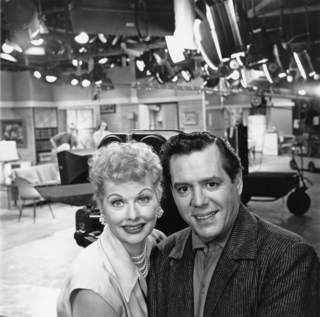
Premiering in 1951, "I Love Lucy" instantly became a hit with viewers and changed the landscape of television forever. The show centered around the hilarious antics of Lucy Ricardo, played by Lucille Ball, and her Cuban bandleader husband, Ricky Ricardo, played by Desi Arnaz.
The sitcom broke new ground by introducing innovative techniques such as the use of three-camera setups. It was the first scripted television show to be filmed in front of a live studio audience, a format that is now the norm for sitcoms.
Additionally, the show was instrumental in introducing the concept of reruns, as its popularity led to re-airings of episodes that many viewers couldn't get enough of.
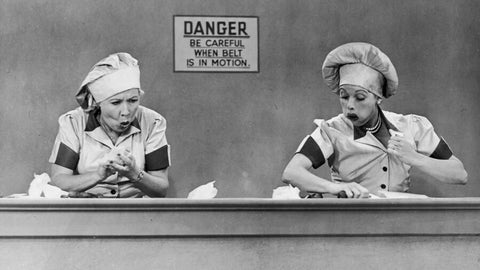
Lucille Ball's portrayal of Lucy Ricardo defied traditional gender roles of the time. She was not just the housewife and homemaker; she was also ambitious, determined, and unafraid to challenge social norms. Her character's comedic antics and desires to pursue a career in show business provided a refreshing and empowering perspective on women's roles.
Lucille's comedic genius and impeccable timing turned "I Love Lucy" into a cultural phenomenon. Her unique brand of physical comedy, coupled with Desi's charm and musical talents, made the show an immediate favorite among audiences of all ages. She portrayed Lucy Ricardo with such authenticity and relatability that viewers couldn't help but laugh along with her misadventures.
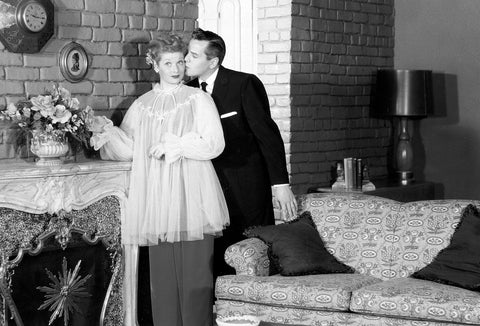
After their show had some downtime, Lucy and Desi teamed up for two movies: "The Long, Long Trailer" (1954) and "Forever, Darling" (1956).
Lucille and Desi had two children together: Lucie Arnaz, born on July 17, 1951, and Desi Arnaz Jr., born on January 19, 1953.
"I Love Lucy" ran for six seasons before ending in 1957. Despite the show's end, Lucille Ball's career was far from over. In 1950, she and Desi Arnaz had formed their production company, Desilu Productions, which went on to produce many successful television shows, including "The Untouchables" and "Star Trek."
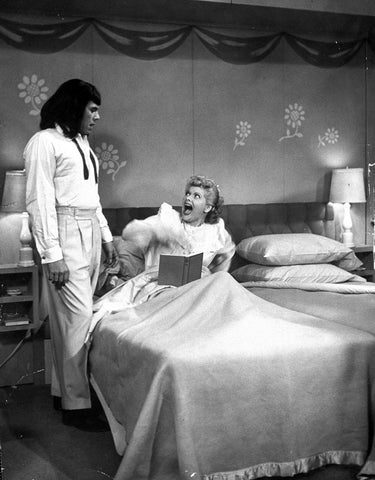
In 1960, CBS purchased the rights to "I Love Lucy" from Desilu Productions for the then-unprecedented sum of $5 million. This deal marked the largest acquisition of a television series up to that point and set a precedent for future deals within the industry. Moreover, the purchase allowed CBS to secure syndication rights, ensuring that "I Love Lucy" would continue to entertain audiences across the country for years to come.
The groundbreaking show was recognized with numerous awards and accolades and paved the way for the sitcoms that followed.
After her divorce from Desi Arnaz in 1960, Lucille continued to work in television and film. She starred in the successful sitcom "The Lucy Show" from 1962 to 1968 and "Here's Lucy" from 1968 to 1974. These shows cemented her status as the Queen of Comedy and solidified her place in the hearts of audiences worldwide.
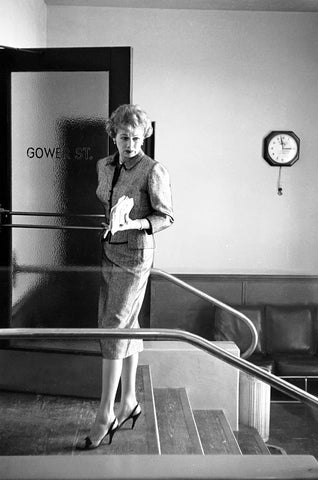
Lucille Ball's impact extended beyond entertainment; she was also a shrewd businesswoman and an inspiration to many. She was the first woman to head a major television studio when she took over as president of Desilu Productions, breaking barriers and paving the way for female executives in the industry.
As the years went by, Lucille Ball's health began to decline, and she retired from acting. Sadly, on April 26, 1989, the world lost a true icon when Lucille Ball passed away from an aortic aneurysm at the age of 77. The outpouring of love and grief from fans and fellow celebrities was a testament to the profound impact she had on the world.
Lucille Ball's legacy continues to live on in the hearts of millions. Her contributions to comedy and television are timeless and continue to be celebrated through reruns of her iconic shows.
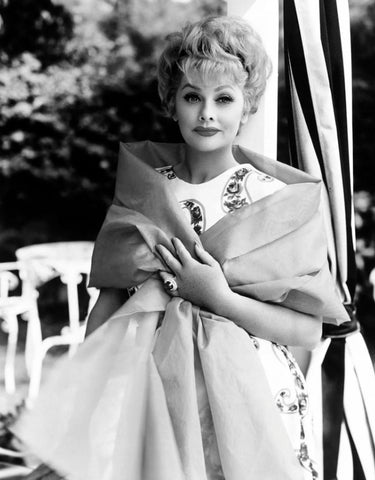
In recognition of her immeasurable influence on the entertainment industry, Lucille Ball was posthumously awarded the Presidential Medal of Freedom in 1989 by President George H.W. Bush. The prestigious award symbolized the lasting impact she had on the world and solidified her status as one of Hollywood's most treasured legends.
Lucille Ball once said, “I'm not funny. What I am is brave.” In truth, she was both. Her bravery to pursue her dreams, challenge conventions, and bring joy to millions through her humor is a legacy that will never fade. Her contributions to the world of entertainment will continue to inspire future generations, ensuring that the Queen of Comedy will forever reign in our hearts and memories.
-----------------------------------------------------------------------------------------------------------
Did you know?
Lucille, already a prominent actress, and Desi, a charismatic bandleader and actor, first met on the set of the film "Too Many Girls" in 1940. It was a classic case of love at first sight, and they married later that same year.
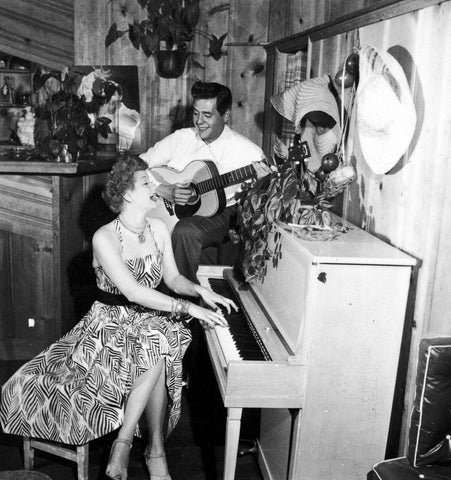
While Ball, born Lucille Désirée Ball, made pictures in Hollywood, and gained fame as the star of the radio show "My Favorite Husband," Arnaz spent much of his time on the road touring with his band.
Lucille and Desi vowed to find more opportunities to work together. Their big chance came in 1950 when CBS approached Ball about moving "My Favorite Husband" to the fledgling medium of television. Seeing it as a chance to finally work with her real-life spouse, Ball, playing the role of Lucy Ricardo, asked the network to cast Arnaz in the role of her husband, Ricky Ricardo.
To prove that they could make the sitcom work, Arnaz and Ball formed Desilu Productions (the very first independent television production company) to produce the pilot for "I Love Lucy."
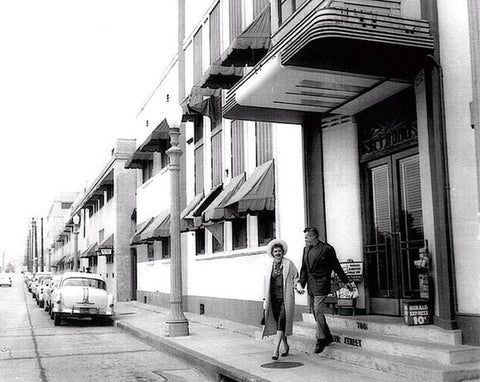
Desilu Productions is a combination of their first names, Desi and Lucille. It was a bold move that placed creative control firmly in their hands.
In doing so, Arnaz and Ball made themselves their own bosses, providing their product to CBS rather than working directly for the network or a sponsor, which was then the common practice in television.
In the early days of television, most production was done in New York, mainly because the Hollywood studios considered television to be a threat to their film empires. So, quite naturally, CBS expected Arnaz and Ball to move to New York. But the couple insisted on staying in Hollywood.
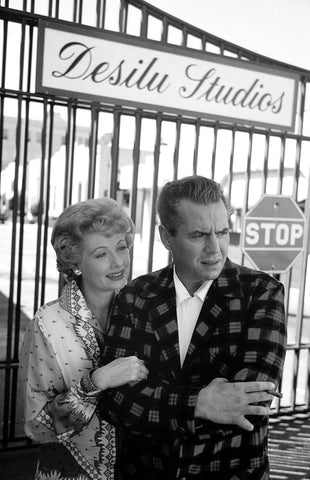
Again, CBS protested, claiming that live production in Los Angeles was impractical. Because of the time difference between the coasts, the network would be forced to air blurry kinescopes in the East, where most television-viewing homes were located. Arnaz and Ball offered a simple solution: produce the show on film and dispense with kinescopes altogether.
CBS wasn't exactly thrilled with this suggestion. Using film would double production costs. To offset the added cost, Arnaz and Ball agreed to cut their joint weekly salary from $5,000 to $4,000 on the condition that Desilu retained all rights to the show. CBS agreed, and in one fell swoop Arnaz and Ball invented reruns, paved the way for syndication, and pulled off what would become one of the most lucrative deals in television history.
Arnaz was the first television producer to film with three cameras instead of one, so he could shoot angles and close-ups simultaneously.
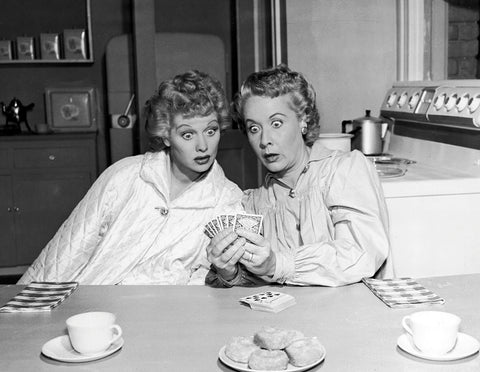
"I Love Lucy" debuted in October 1951—the same year the couple welcomed their first child, daughter Lucie Arnaz—and quickly became one of the top-rated television shows. The show made production in Hollywood so acceptable that by 1961 every major prime-time television show was filmed on the West Coast.
Desilu Productions went on to produce and develop several successful shows, including "The Lucy-Desi Comedy Hour," "The Untouchables," "Star Trek," and "Mission: Impossible."
The couple divorced in 1960. By 1961, Ball had remarried and was starring in "The Lucy Show"—with ex-husband Arnaz directing. But it proved to be too much for Arnaz to handle, and in 1962, he asked Lucy to buy him out of Desilu. She paid him $2.5 million for his shares and became the first woman CEO of a major television and movie production company.
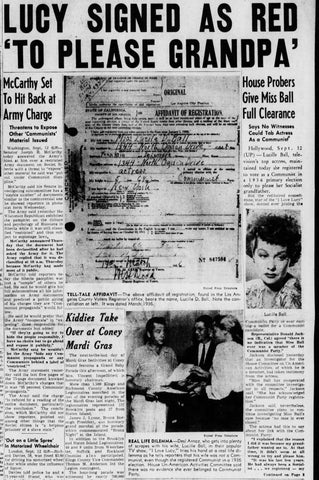
In 1968, Lucille sold her shares of Desilu to Gulf + Western (later Paramount Television) for $17 million.
THE RED SCARE:
During the 1950s Red Scare, Lucille Ball got caught up in rumors about being associated with communist sympathies. These rumors were fueled by her past registration as a Communist when she voted in the 1936 election. She was 24 years old at this time. Ball explained that she only did it to please her socialist grandfather and was never an active member.
In 1953, Ball voluntarily met with the House Un-American Activities Committee to clear things up and reiterated that she was never a true Communist supporter. The director of the FBI, J. Edgar Hoover, told Desi Arnaz over the phone, the studio audience hearing the call, "Your wife is cleared of any charges. 100 percent clear."
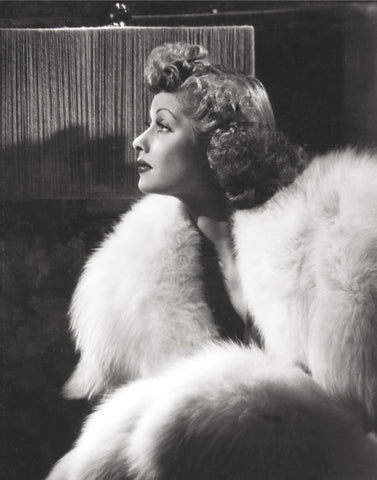
Despite the ordeal, when filming "I Love Lucy" before a live audience, Desi Arnaz addressed the situation directly, saying, "The only thing red about Lucy is her hair, and even that's not legitimate."
Lucille Ball died on April 26, 1989. After her passing, she was cremated, and her ashes initially found their resting place at Forest Lawn Memorial Park in Hollywood Hills, California. In 2002, her children moved her remains to the family plot at Lake View Cemetery in Jamestown, NY, her hometown.
“I’m happy that I have brought laughter because I have been shown by many the value of it in so many lives, in so many ways.”
— Lucille Ball
